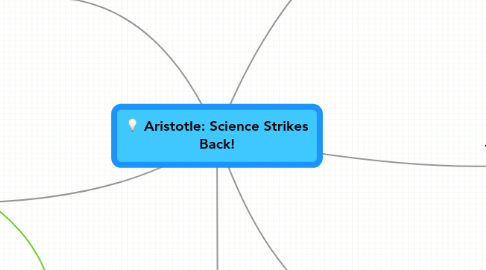Aristotle: Science Strikes Back!
Ezinne Nwankwoにより


1. What is a teleological system?
1.1. Aristotle believed that everything in this world has causes (things that drive them to be created).
1.1.1. material caus: the material from which the thing is made.
1.1.2. formal cause: the shape or form a thing must take in order to be recognized.
1.1.3. efficient cause: the actual force used to make things.
1.1.4. final cause; what is the ultimate purpose of the thing.
2. Example: Doryphoros
2.1. material cause: bronze and marble
2.2. formal cause: controposta to show movement; head tilted; in the nude
2.3. efficient cause: chisel and nail
2.4. final cause: didactic sculpture that teaches wisdom, beauty, and perfection; platonic sculpture because it is mathematically precise.
3. Where do the forms reside?
3.1. Aristotle believes that the forms lie inside the things themselves.
3.2. For example, the form of the oak tree is the inside of the acorn.
3.3. Each thin g that we see is part of a teleological (goal-oriented) system.
4. Metaphysics
4.1. "All men by nature desire to know. For example, the delight we take in our senses."
4.1.1. Plato and Socrates say that our senses will misguide us and lead us into the cave of illusion.
4.2. Aristotle believes that nature does nothing by chance. We have been given senses to use them to understand the world.
5. How do our senses differ from other animals?
5.1. All forms of life have nutritive, reproductive, and locomotive power.
5.2. Animals differ by having the power of sensation and perception.
5.2.1. To sense and perceive from their senses.
5.3. More complex animals have intellectual power.
5.3.1. problem solving ability
5.4. Aristotle argues that humans have a special intellectual power called reason.
5.4.1. reason is the ability to comprehend universes.
